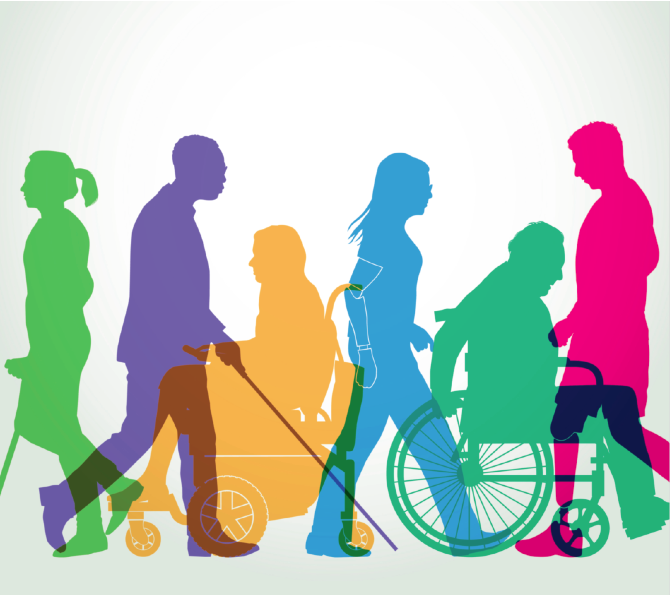
All we want for Christmas is... for politicians to commit to helping disabled workers
by Sophie MorganAs we hurtle towards the polls this week, my thoughts are turning to how disabled people can make their voices heard during an unusually festive election period (the last December General Election was in 1923).
I love Christmas and the time I get to spend with my family and friends, but for many of us, this time may now feel a little uncertain.
There are 14m disabled people in the UK — that’s one in five of us. Yet despite decades of campaigning, disabled people are still drawing the short straw when it comes to equality. This sheer lack of progress could leave you feeling less than brimming with festive cheer.
But on the bright side, this election is also an opportunity for disabled people to highlight the issues that the next government must address.
Families across the UK desperately need help. Living costs are sky high and public transport is often off limits or partially rationed for disabled people. I can hardly count the number of times that I’ve been left stranded on a train or plane.
For me, juggling full-time work and disability, Christmas is one of the only times of year when I get some real down time. But in the current financial climate, taking time away from work can feel risky for anyone.
In fact, the added financial pressures of the holiday season can be stressful, especially for the families of disabled children. All year round, they face daily battles to get their children the support they deserve. But the lack of support caused by the funding gap in children’s social care makes it that much harder for families to cope, and Christmas can feel even more difficult.
As the year draws to a close, money is on many people’s minds, with presents and parties to pay for. January cutbacks are inevitable for most. But for many disabled people, being forced to cut back on essentials to save money isn’t just for Christmas, it’s for life.
Simply put, life costs more if you are disabled, and there are plenty of areas where the next government could better support disabled people to be financially secure.
As a TV presenter and disability advocate, I know how lucky I am to have a job where I feel confident and love what I do. Yet I know that millions of disabled people struggle to find a job and stay in work.
Disability equality charity Scope found that disabled people apply for 60 per cent more jobs on average than non-disabled people, and half of businesses say that it’s easier to recruit a non-disabled person over a disabled person. The next government must turn this around and unleash the potential of disabled people. This will mean fixing the failures in our welfare system, and ensuring that employers are doing all they can to hire and retain disabled people.
I travel a lot with my work, and as a full-time wheelchair user, I’m no stranger to transport-related woes. Winter and Christmas transport is the worst, especially if you add in crowds and cancellations.
But imagine if you could only expect a substandard transport service every day of the year. For many disabled people, simple journeys can quickly turn into nightmares. The next government could help by setting up a Passenger Charter, so that it’s clear what disabled people can expect from transport companies.
This Christmas, we can hope that politicians will grant our wishes by committing to concrete policies that will tackle the inequalities we face.
There are many challenges ahead, but it’s certainly not all doom and gloom, as 2020 is set to be a big year for disability. We’ve got the Tokyo Paralympic Games, and there are so many places where I see the twinkling lights of change happening.
So let’s make 2020 a year to celebrate. Together, we can use our power and passion to move things forward.